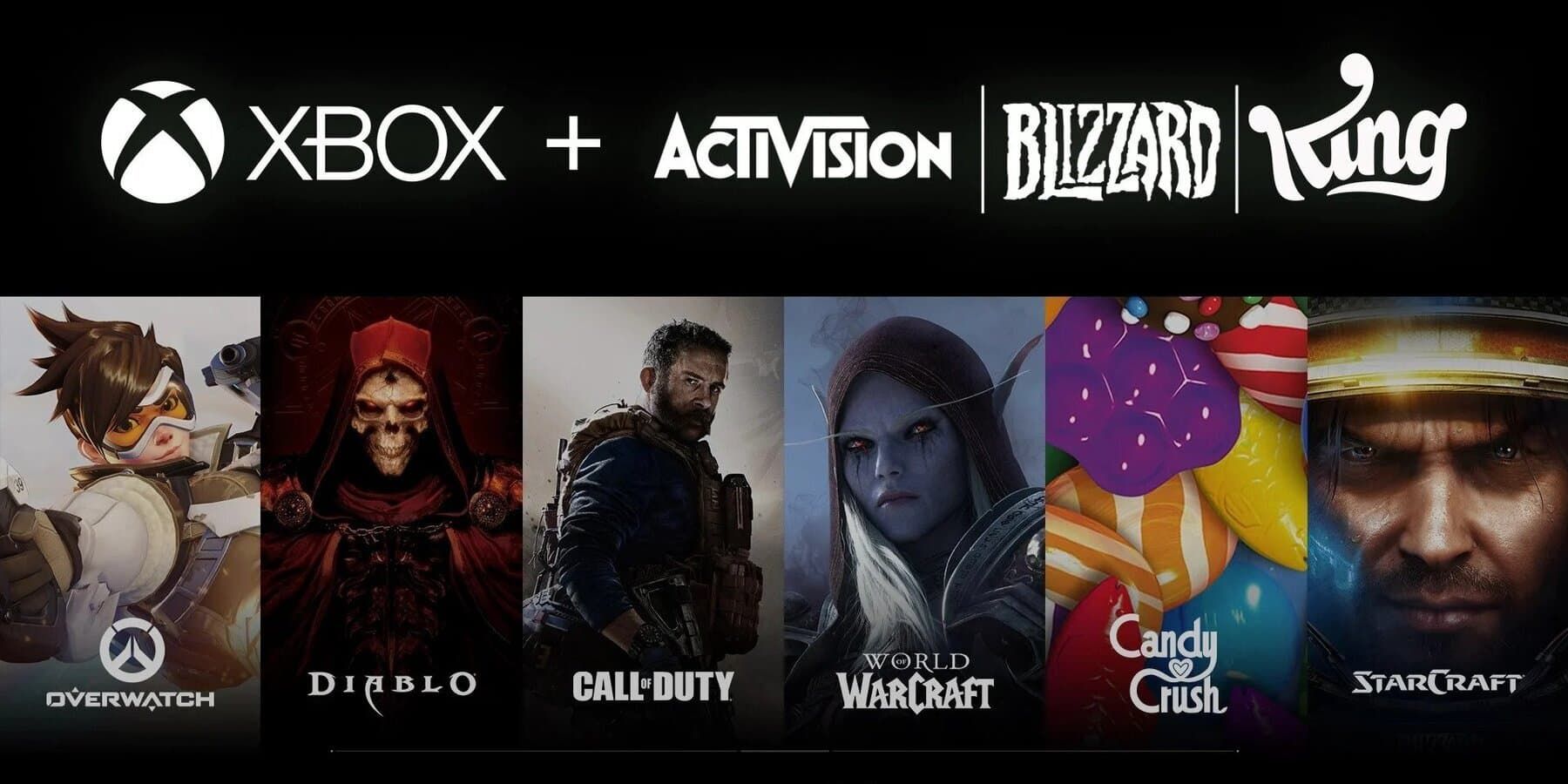
The Powerhouse of Gaming: Unveiling Xbox's Unprecedented Franchise Empire Post Activision Blizzard Takeover

Microsoft's acquisition of Activision Blizzard is a game-changer for Xbox, as it now boasts an impressive lineup of legendary franchises under its wing
Highlights
Xbox has been acquiring popular gaming franchises and studios in recent years, compensating for the declining relevance of its own IPs like Halo and Gears of War.
The acquisition of Activision Blizzard has greatly expanded Xbox's portfolio, establishing it as a powerful entity in the gaming industry. Now, Xbox owns a diverse collection of renowned franchises across various genres, further cementing its position as a market leader.
In recent years, Xbox has shifted its approach by acquiring established franchises from other studios, in addition to building its own popular IPs. This strategic move is in response to the declining relevance of older Microsoft IPs like Halo and Gears of War. With its significant financial resources, Microsoft has been able to purchase highly popular franchises and gaming studios to compensate for this. The recent completion of the Microsoft's acquisition of Activision Blizzard takes this tactic to a new level. As a result, Xbox now possesses a remarkable collection of well-established IPs from various acquired studios, all falling under the Microsoft name.
The Activision Blizzard Acquisition: All the Franchises That Xbox Now Owns
A lot of franchises already fall under the Xbox Games Studios name, with Xbox curating its own home-grown IPs over the past two decades. These franchises include:
Halo
Blue Dragon
Gears of War
Crackdown
Age of Empires
Flight Simulator
Zoo Tycoon
This portfolio was significantly expanded with Microsoft's purchase of Rare in 2002. The $375M move saw Xbox acquire or eventually produce:
Banjo-Kazooie
Battletoads
Conker
Kameo
Killer Instinct
Kinect Sports
Perfect Dark
Sea of Thieves
Viva Pinata
In 2006, Microsoft acquired Lionhead Studios to secure the rights to the successful Fable franchise under the Xbox name. In 2011, Twisted Pixel Games joined the Xbox family, with their arcade-style franchises The Maw and 'Splosion Man also becoming part of Microsoft. The following year, in 2012, Microsoft made a significant move by acquiring the Minecraft developer Mojang in a $2.5B deal. This acquisition marked a turning point for Microsoft as it gained control over a highly popular and influential game, second only to Tetris in the best-selling games of all time list, demonstrating the company's increased scale and ambition in their acquisitions.
In 2018, Microsoft acquired Ninja Theory, Undead Labs, Compulsion Games, Playground Games, inXile Entertainment, and Obsidian Entertainment. As a result, Xbox gained ownership of Hellblade.
State of Decay
We Happy Few
Forza Horizon
Wasteland
The Bard's Tale
Pillars of Eternity
Pentiment
The Outer Worlds
Grounded
Avowed
Microsoft acquired Double Fine in 2019 and later made a significant impact in the gaming industry with its $8.1B acquisition of ZeniMax Media in 2020. This purchase granted Xbox ownership of popular franchises such as Psychonauts, Bethesda, Arkane Studios, id Software, MachineGames, and Tango Gameworks. As a result, Xbox secured a prominent lineup of games, including the well-known Fallout franchise.
The Elder Scrolls
Starfield
Doom
Quake
Rage
Wolfenstein
Dishonored
Prey
Redfall
The Evil Within
Ghostwire: Tokyo
Hi-Fi Rush
In January 2022, Microsoft made a surprising announcement of its intention to acquire Activision Blizzard, adding to its already impressive collection of highly popular franchises. The magnitude of this acquisition was evident in Microsoft's record-breaking offer of $69B for the company, leading to a lengthy legal battle and regulatory hurdles that lasted almost two years. However, with the eventual approval from the UK Competition and Markets Authority (CMA), Xbox now proudly owns Activision Blizzard, as well as the prestigious franchise: Call of Duty.
Overwatch
Diablo
Warcraft
Starcraft
Guitar Hero
Crash Bandicoot
Spyro
Skylanders
Tony Hawk
Hearthstone
With the Activision Blizzard acquisition, Xbox has positioned itself as a leading powerhouse in the gaming industry, gaining control over numerous top-tier franchises in different genres. Whether Microsoft's ambitious approach will result in further acquisitions remains uncertain, considering Xbox's already substantial portfolio of intellectual properties.













